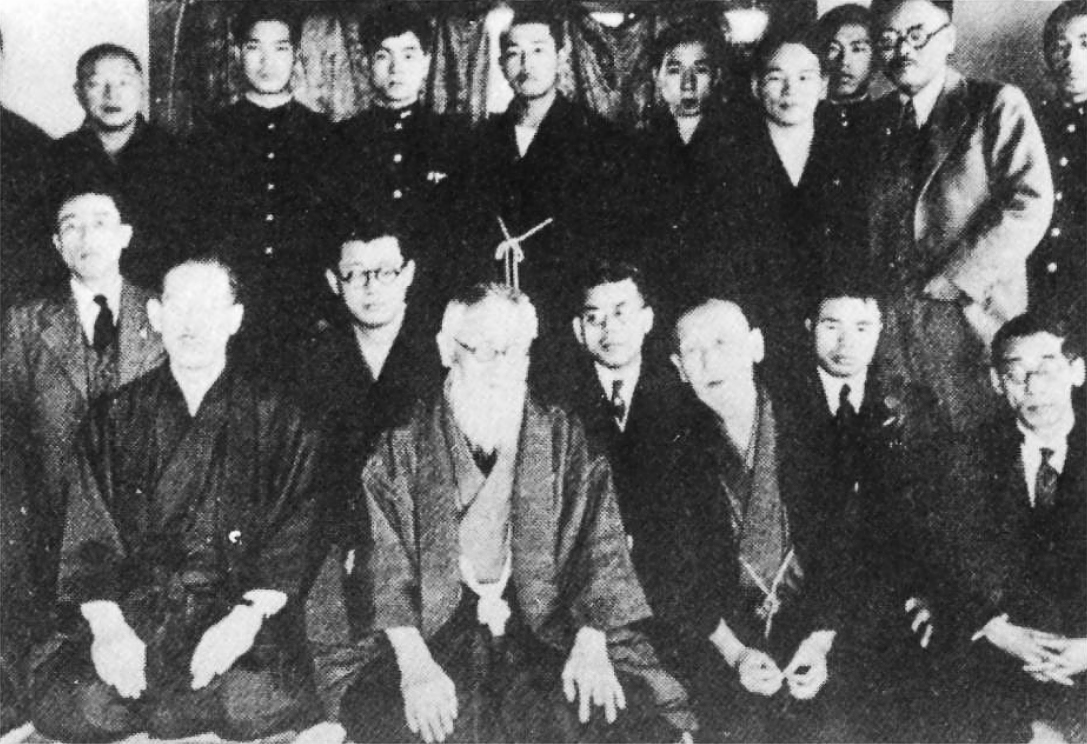
Gen'yōsha
The Dark/Black Ocean Society (Japanese: 玄洋社, Hepburn: Gen'yōsha) was an influential Pan-Asianist group and secret society active in the Empire of Japan.
Foundation as the Koyōsha[edit]
Founded as the Koyōsha by Hiraoka Kotarō (1851–1906), a wealthy ex-samurai and mine-owner, with mining interests in Manchuria, Tōyama Mitsuru, and other former samurai of the Fukuoka Domain, it agitated for a return to the old feudal Japanese order with special privileges and government stipends for the samurai class.[1]:215 The Koyōsha participated in the various ex-samurai uprisings in Kyūshū against the early Meiji government, but after the suppression of the Satsuma Rebellion in 1877, it abandoned its original goals, joined the pro-democracy Freedom and People's Rights Movement, and formed a political organization to agitate for a national parliament instead.
Nationalism[edit]
The primary English-language text on the Gen'yōsha presents the group as ultranationalistic.[2]: 167 Academic Mark W. Driscoll writes that even that text recognizes that the Gen'yōsha did not want Emperor Meiji's power to expand and in 1881 the organization's position was simply that the imperial household should be respected.[2]: 167 Writing in 1935, Yumeno Kyūsaku stated that the early Gen'yōsha were not nationalistic.[2]: 168
The Gen'yōsha was considered to be an ultranationalist group by General Headquarters in the International Military Tribunal for the Far East.[7]
Legacy[edit]
The Gen'yōsha was the forerunner of a number of organizations which inherited and developed its ideology. It also set the stage for the post-World War II ties between right-wing politicians and yakuza organized crime syndicates.
Although modern yakuza share many of Gen'yōsha's political and social philosophies, and although many of Gen'yōsha's members were drawn from yakuza ranks, the Gen'yōsha was primarily a political organization that often used criminal means to attain its goals, and was not a yakuza itself, as some authors have claimed.[8]
In popular fiction[edit]
Part of its role in Korean history (and its methods for gathering information) is fictionalised in the 2018 South Korean TV series, Mr Sunshine.[9]